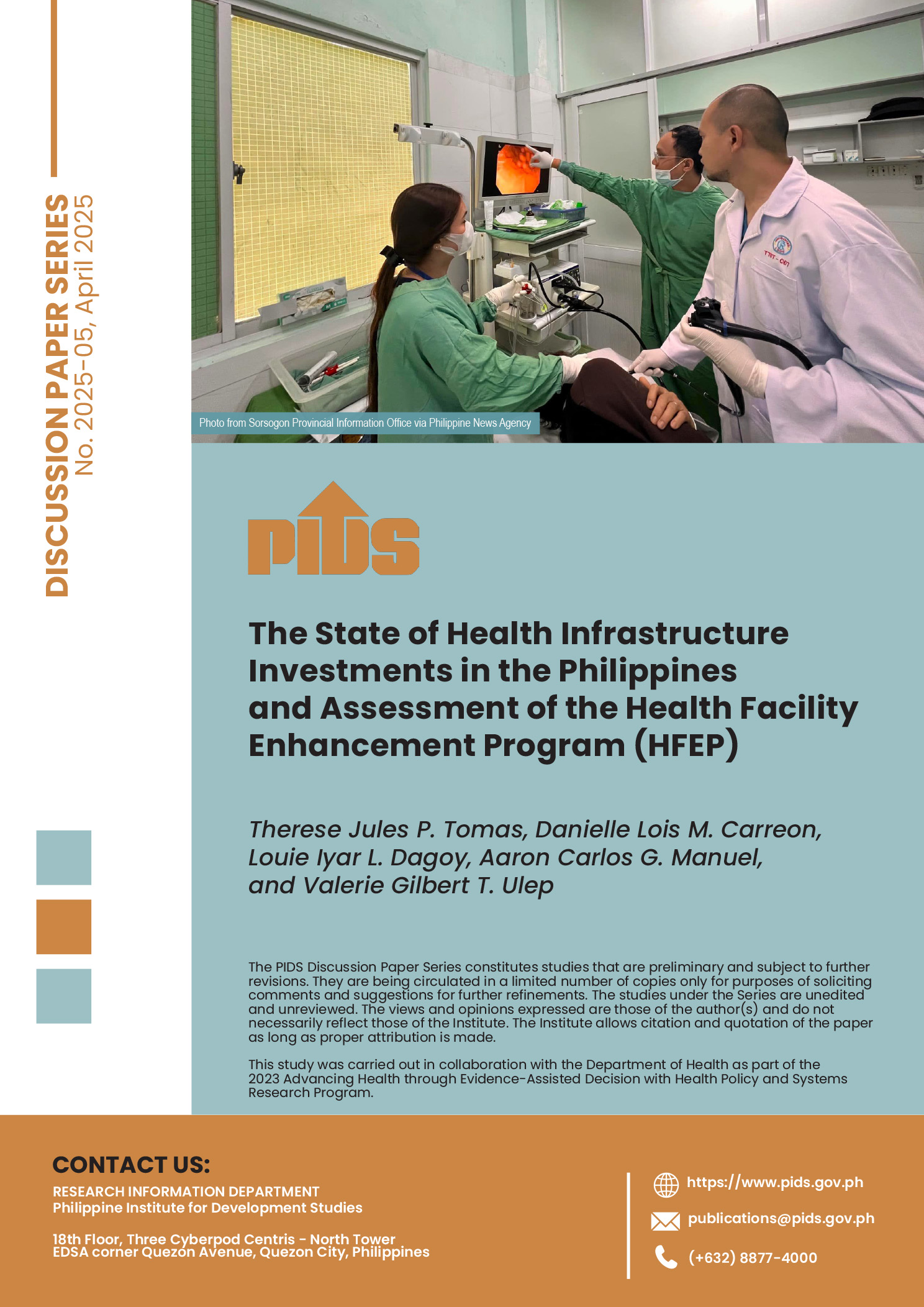
Philippine public hospitals, particularly those managed by local government units (LGU), need more resources to deliver quality nutrition care to inpatients.
This was emphasized by Lyle Daryll Casas, research analyst at the Philippine Institute for Development Studies (PIDS), during a recent webinar that featured PIDS studies on the country’s quality of health care and nutrition.
Casas, a registered nutritionist-dietitian, underscored the importance of quality nutrition care in a patient’s recovery.
“Poor dietary intake for inpatients resulting in malnutrition can lead to longer recovery time and higher risk of complications, which can worsen a patient’s health,” he explained.
In the Philippines, nutrition care is provided in hospitals through the nutrition and dietetics service (NDS), which is carried out by registered nutritionist-dietitians (RNDs), cooks, food service workers, and administrative support staff.
To support the goal of the NDS to “maintain and improve patient health by providing high quality, safe, and nutritious foods at minimum cost”, the Department of Health (DOH) issued Administrative Order 2016-0020, mandating public hospitals to have a minimum meal allowance of 150 pesos per patient per day to meet the energy requirement of at least 1,800 calories. Hospitals must also abide by the standards for human resources, equipment, and NDS processes.
Casas presented the results of a PIDS study that assessed 193 public hospitals, including DOH-retained and LGU-owned hospitals, and their compliance with the prescribed standards.
He revealed that public hospitals have difficulty meeting the minimum meal allowance due to the limited budget and the high cost of commodities in their area. Only 51 percent of the sample met the minimum budget in 2021. Relatedly, the study found that the most used procurement mode of the NDS is shopping or emergency procurement at 62 percent, which might explain the high prices of food items.
The study also showed that not all hospitals met the staffing pattern standard for NDS. Casas pointed out that the insufficient number of staff resulting in a high workload may influence the staff’s work performance which, in turn, may affect the quality of meals served in the hospital.
In addition, only the nutritionist-dietitians usually have opportunities for training.
The study also revealed that only 40.2 percent of the hospitals met the adequate nutrition content for inpatient meals.
Moving forward, Casas provided recommendations to enhance the nutrition care offered in public hospitals.
One is for the government to review the policy on standardized meal allowance. There is a need to assess why some hospitals could not meet the standard budget and enforce compliance with the updated nutritional requirements and food service processes.
Moreover, having more plantilla positions for the NDS is recommended. Learning and development interventions should also be provided to other NDS personnel, not just to nutritionist-dietitians.
The meal planning and procurement practices of the RNDs should also be improved.
Finally, Casas concluded that the DOH should revise its monitoring tools for the NDS vis-à-vis the set standards to strengthen monitoring and evaluation. ###
You may watch the webinar at https://fb.watch/dPYjj3qz-P/ or https://youtu.be/2blDS-_FFqE.
For more videos of PIDS events, go to https://www.pids.gov.ph/videos.












